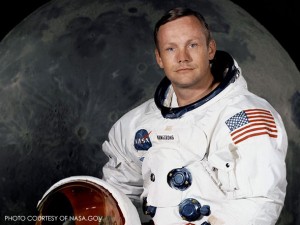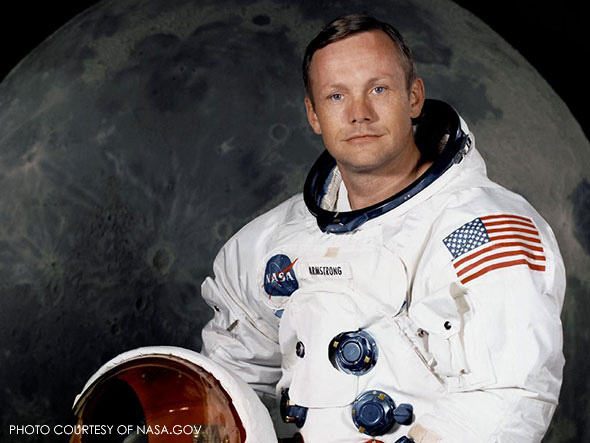Neil Armstrong took one giant leap for mankind 43 years ago. He left his footprint on the moon and in the hearts of the millions of those who watched. His passing on

Saturday shocked the world no matter what generation they were apart of.
Who has not heard those famous words spoken, written or referenced? They are a crowning achievement in the 20th century and helped him become one of the most notable people of all time.
Of the millions who gathered round their televisions during the moon landing, my father, Larry Conrad, was one of them. At the time Conrad was a 14 year old boy in a small North Carolinian town. His generation was probably the most fascinated by the idea of space travel.
“I watched all of the Gemini (pronounce Jimini). I remember when Apollo 1 burned up. I remember all the names of the missions,” said Conrad, a young 57. “this wasn’t big for me, it was humongous.”
Larry recalls watching the big moment in his father’s barbershop on a black and white television with only 3 channels. “At the time, we didn’t even know it was broadcasted only in black and white. It was a shock that it was even live,” said Conrad. He also remembers watching the hooplah occur in Times Square.
The death of the celebrated astronaut left him a little empty. “It is kind of like losing President Roosevelt during WWII. He was kind of the quiet leader who met an early death which is not early but not as late as it could’ve been,” said Conrad.
The impact he left on the 60s generation is everlasting, however newer generations did not have the luxury of watching it live. David Schuler, junior and aerospace enthusiast, shares similar feelings towards the late astronaut although he has only seen clips.
“While many Americans have an extremely nationalistic stance on the space race, I have to settle for viewing the space race as a testament to human accomplishment,” said Schuler. “On that note, Armstrong’s passing takes on a far more meaningful definition: we didn’t just lose an American hero; we lost a hero of humanity.”
Both Conrad and Schuler felt sad for the decline in space exploration following in his footprints. His passing reminded us how little we have advanced in space exploration since his time. NASA has been able to provide innovative products, but we have not been able to duplicate his accomplishment.
To those people who do not believe in his greatest feat, his death was sad but unforgettable. Eddie Flint, junior, immigrated to America when he was eleven years old, just like Schuler. Neither had a sense of nationalism to their new country, however Eddie did not view Armstrong the same as David.
“It has very slightly changed because of something human nature that you can’t ignore,” said Flint. “I still don’t believe that he landed on the moon. That’s not gonna change after he dies. Yes, I sympathize for his loved ones but that doesn’t alter my view of him.”

Leave a Reply